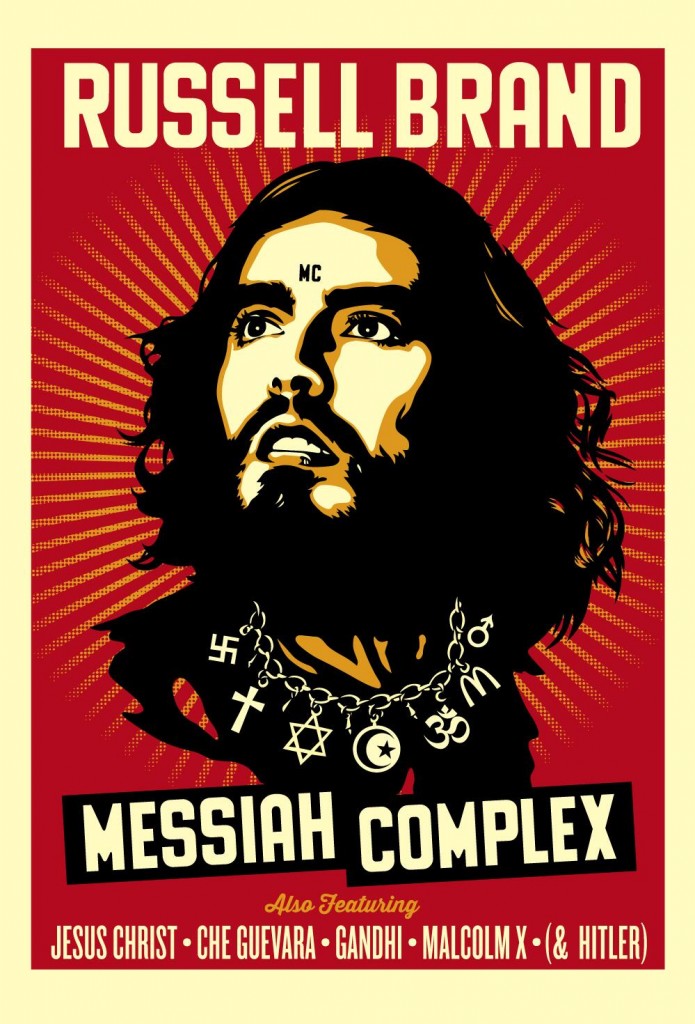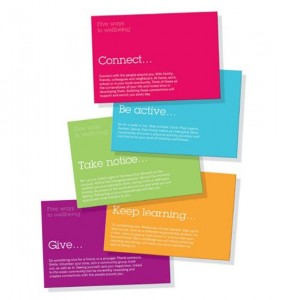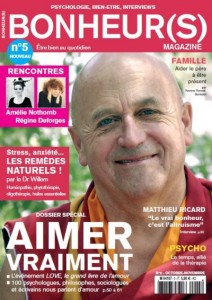Tonight I went to see Russell Brand’s new show, Messiah Complex. Whether he has a true messiah complex, or just a strong opinion about everything, I’m not sure.
On stage, he is flanked by portraits of four great men: Mahatma Gandhi, Che Guevara, Malcolm X and Jesus Christ. And during the show, we find out what he has in common with his personal heroes.
Brand’s texts are very sharp. He packages his criticism of society in extremely elaborate and fancy phrases that I can hardly reproduce here. Take a look at his famous interview with Jeremy Paxman of the BBC to get an idea of his ideas of revolution.
Brand believes in socialism and communism. He believes in revolution, though a revolution without a programme. He denounces politicians serving themselves and advertising creating false desires in us, but does not propose a way to an alternative.
That’s of course fine: diagnosing a problem does not mean you’re responsible to find the cure. And as a comedian, he fulfills the role of the fool or the clown that makes us question the world we live in, the planet we destroy, the lack of social justice worldwide.
The dark side of heroes
Admirably, he also discuss some of the things that Gandhi, Guevara and Malcolm X did not get right. He tells how Gandhi refused to give his wife an English medicine, preferring Indian ayurvedic medicins required by the Hindu tradition. She tragically died. When he fell ill himself some weeks later, he did accept the medicine.- In Brand’s interpretation, Gandhi had a mission on earth and more to live for.
But some of Brand’s social critic is a bit too simple. It is true that large global companies and some political systems concentrate power and money in the hands of the few. That is part of the system we live. But is it the systematic intention of people that go to work every day to exploit others or to accumulate wealth and power to the detriment of others? I don’t believe so. Large organisation also provide jobs, a livelihood and meaning to so many people that just want to live their lives. Many of us are better off than all generations before us.
Fart for revolution
Some of the elements are shallow. Call me conservative: some jokes about sex with cats are funny, but if it goes on and on it doesn’t contribute to the story. Denouncing all evils is worthwhile. But parts of his remarks, packed in fancy sentences, are mere provocation, the equivalent of farting for revolution. Brand’s attracting the attention by saying “look, I just farted, now listen to me”, as if he never grew older than four.
The message: find your heroes
In any case, the combination between high and low registers works. There’s something in the show for people who just want to have a laugh. Brand has great charisma, warmth and style. He is a personality on stage. And there’s a strong message: everybody needs to have heroes, even if they’re not perfect. Nothing is black or white. And even from those who have their dark side, there’s is a lesson to learn. Mistakes that our heroes have made don’t mean we can’t be inspired by them to change for the better. The same applies to himself – from a drug addict to comedian revolutionary.
Maybe Russell Brand is the messiah.



